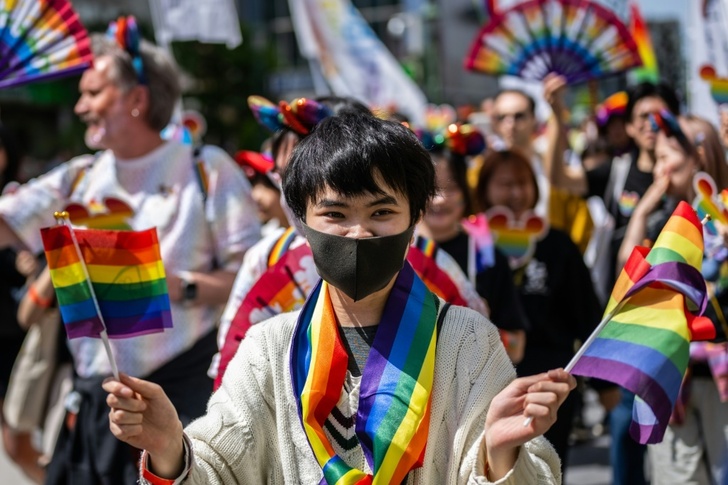A new bill submitted to Japan's parliament on Thursday aimed at "promoting understanding" of equality issues has been criticised as a "meaningless gesture" by LGBTQ campaigners because lawmakers watered down its language.
Japan's coalition government has debated the wording of the new bill for months, with conservative politicians saying an anti-discrimination clause could deepen social divisions or open up companies and individuals to malicious lawsuits.
The proposed bill says "unjust discrimination" towards sexual minorities must not happen, with the word "unjust" added to a previously mooted version of the legislation.
Advocacy group Sexualities and Human Rights Network ESTO said the changes to the bill showed it had been "gutted" by the ruling Liberal Democratic Party (LDP).
"There can be no discrimination that is just," the group said in a statement this week, following media reports about the updated wording.
LGBTQ activist Soshi Matsuoka also criticised the bill at a recent rally, calling it a "step backwards".
"Instead of promoting understanding, this bill risks hampering it," he said.
"Submitting this bill to parliament before the G7 summit is a meaningless gesture," Matsuoka said of this week's G7 meeting in Japan.
The bill saw a swell of interest ahead of the Tokyo Olympics in 2021 but its passage was waylaid by conservative LDP members.
Their resistance has been staunch this time, leading to months of debates over the bill's language.
Broadcaster TV Asahi reported that the bill may not even be debated because of disputes with opposition parties who want stronger wording.
However, proponents of the bill, including LDP lawmaker Tomomi Inada, hailed it as a "big step forward", according to public broadcaster NHK.
"Excessive assertions of human rights, and human rights violations against the 'sexual majority', must be prevented," LDP lawmaker Hiroyuki Miyazawa recently told reporters.
Language in the proposed bill describing discrimination against transgender people was also changed from the 2021 version.
Transgender activists cautioned that the revised wording appears to put more emphasis on medical diagnosis of gender identity disorder, rather than self-perceptions of gender, as a basis for discrimination.
Japan is the only Group of Seven country that does not recognise same-sex unions, despite polls showing public support for marriage equality.
The nation also has no specific anti-LGBTQ discrimination law, and Prime Minister Fumio Kishida has been under pressure to strengthen legal protections ahead of the G7 summit that kicks off in Hiroshima on Friday.
One of Kishida's secretaries was fired in February after he reportedly said he "doesn't even want to look at" married same-sex couples.
Kishida called the remarks "outrageous" and "incompatible" with the inclusive society his government wants.
tmo/kaf/dhw/pbt
© Agence France-Presse
Your content is great. However, if any of the content contained herein violates any rights of yours, including those of copyright, please contact us immediately by e-mail at media[@]kissrpr.com.
Source: Story.KISSPR.com

